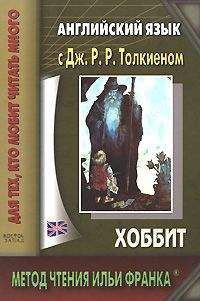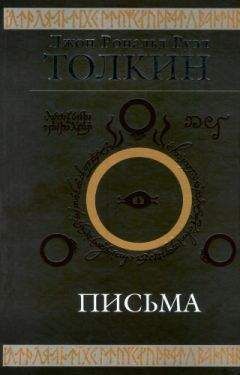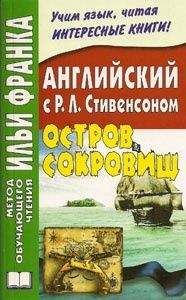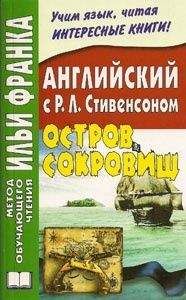“Not at all, not at all, my dear sir! Let me see, I don’t think I know your name?”
“Yes, yes, my dear sir — and I do know your name, Mr. Bilbo Baggins. And you do know my name, though you don’t remember that I belong to it. I am Gandalf, and Gandalf means me! To think that I should have lived to be good — morninged by Belladonna Took’s son, as if I was selling buttons at the door!”
“Gandalf, Gandalf! Good gracious me (Боже правый; gracious — милостивый)! Not the wandering wizard (не тот ли самый странствующий волшебник) that gave Old Took a pair of magic diamond studs (который подарил Старому Туку пару волшебных бриллиантовых запонок) that fastened themselves (которые сами застегивались; to fasten — связывать, скреплять) and never came undone till ordered (и никогда не расстегивались, пока им не прикажешь)? Not the fellow (не тот ли самый человек) who used to tell such wonderful tales at parties (который, бывало, рассказывал такие удивительные истории в гостях; party — отряд, компания; вечеринка), about dragons and goblins and giants (о драконах, и гоблинах, и великанах) and the rescue of princesses (и о спасении принцесс) and the unexpected luck of widows’ sons (и о неожиданной удаче вдовьих сынов)? Not the man that used to make (не тот ли самый человек, который, бывало, устраивал) such particularly excellent fireworks (такие особенно великолепные фейерверки)! I remember those (я их помню)! Old Took used to have them on Midsummer’s Eve (Старый Тук, бывало, устраивал их в канун /дня/ Летнего солнцестояния: «середины лета»). Splendid (блестяще)! They used to go up (они, бывало, поднимались /так высоко/) like great lilies (как огромные лилии) and snapdragons (и львиный зев) and laburnums (и ракитник-золотой дождь) of fire (из огня) and hang in the twilight all evening (и висели в сумерках весь вечер)!”
gracious [ˈɡreɪʃǝs] wizard [ˈwɪzǝd] diamond [ˈdaɪǝmǝnd] laburnum [lǝˈbǝ: nǝm]
“Gandalf, Gandalf! Good gracious me! Not the wandering wizard that gave Old Took a pair of magic diamond studs that fastened themselves and never came undone till ordered? Not the fellow who used to tell such wonderful tales at parties, about dragons and goblins and giants and the rescue of princesses and the unexpected luck of widows’ sons? Not the man that used to make such particularly excellent fireworks! I remember those! Old Took used to have them on Midsummer’s Eve. Splendid! They used to go up like great lilies and snapdragons and laburnums of fire and hang in the twilight all evening!”
You have noticed already (вы уже заметили) that Mr. Baggins was not quite so prosy (что мистер Бэггинс не был уж таким прозаичным) as he liked to believe (как ему хотелось верить), also that he was very fond of flowers (а также, что ему очень нравились цветы).
“Dear me (Боже мой)!” he went on (продолжал он). “Not the Gandalf who was responsible (не тот ли самый Гэндальф, благодаря которому; responsible — ответственный) for so many quiet lads and lasses (так много спокойных пареньков и девчушек) going off into the Blue (затерялись неизвестно где; blue — синий цвет) for mad adventures (в поисках безрассудных приключений). Anything from climbing trees (любых /приключений/ — от лазанья по деревьям) to visiting Elves (до походов в гости к Эльфам) — or sailing in ships (или плавания на кораблях), sailing to other shores (плавания к другим берегам)! Bless me (ей-богу; to bless — благословлять, славословить), life used to be quite inter (а жизнь-то была очень интерес…) — I mean (я имею в виду), you used to upset things badly (что вы чрезвычайно нарушали порядок; to upset — опрокидывать, расстраивать) in these parts (в этих краях) once upon a time (давным-давно). I beg your pardon (прошу прощения), but I had no idea (но я и понятия не имел) you were still in business (что вы все еще при деле). ”
“Where else should I be (а где же еще я должен быть)?” said the wizard (сказал волшебник). “All the same (тем не менее) I am pleased to find (мне приятно обнаружить) you remember something about me (что вы помните кое-что обо мне). You seem to remember my fireworks kindly (вы, кажется, любезно помните мои фейерверки), at any rate (во всяком случае), land that is not without hope (это значит, что все не так безнадежно: «страна/земля не без надежды»; land — земля, страна). Indeed for your old grand-father Took’s sake (безусловно, ради вашего старого деда Тука), and for the sake of poor Belladonna (и ради бедной Белладонны), I will give you what you asked for (я дам вам то, о чем вы просили). ”
climbing [ˈklaɪmɪŋ] shore [ʃɔ: ] firework [ˈfaɪǝwǝ: k]
You have noticed already that Mr. Baggins was not quite so prosy as he liked to believe, also that he was very fond of flowers.
“Dear me!” he went on. “Not the Gandalf who was responsible for so many quiet lads and lasses going off into the Blue for mad adventures. Anything from climbing trees to visiting Elves — or sailing in ships, sailing to other shores! Bless me, life used to be quite inter — I mean, you used to upset things badly in these parts once upon a time. I beg your pardon, but I had no idea you were still in business. ”
“Where else should I be?” said the wizard. “All the same I am pleased to find you remember something about me. You seem to remember my fireworks kindly, at any rate, land that is not without hope. Indeed for your old grand-father Took’s sake, and for the sake of poor Belladonna, I will give you what you asked for. ”
“I beg your pardon (прошу прощения), I haven’t asked for anything (я ни о чем не просил)!”
“Yes, you have (да, просили)! Twice now (теперь уже дважды). My pardon (моего прощения). I give it you (я даю его вам). In fact (на самом деле) I will go so far as to send you on this adventure (я даже пойду дальше, и отправлю вас на это приключение). Very amusing for me (очень забавное /приключение/ для меня), very good for you (очень хорошее для вас) and profitable too (и очень прибыльное, к тому же), very likely (очень вероятно), if you ever get over it (если только вы доберетесь до его конца; togetover—закончить, разделаться). ”
“Sorry (извините)! I don’t want any adventures, thank you (я не хочу никаких приключений, благодарю). Not today (не сегодня). Good morning (доброго утра)! But please come to tea (но, будьте добры, заходите к чаю) — any time you like (в любое время, какое вы захотите)! Why not tomorrow (почему бы и не завтра)? Come tomorrow (приходите завтра)! Good-bye (до свидания)!”
twice [twaɪs] pardon [ˈpɑ: dn] profitable [ˈprɔfɪtǝb (ǝ) l]
“I beg your pardon, I haven’t asked for anything!”
“Yes, you have! Twice now. My pardon. I give it you. In fact I will go so far as to send you on this adventure. Very amusing for me, very good for you and profitable too, very likely, if you ever get over it. ”
“Sorry! I don’t want any adventures, thank you. Not today. Good morning! But please come to tea — any time you like! Why not tomorrow? Come tomorrow! Good-bye!”
With that the hobbit turned (на этом хоббит повернулся) and scuttled inside his round green door (и поспешно скрылся за своей круглой зеленой дверью; inside — внутрь), and shut it (и закрыл ее) as quickly as he dared (так быстро, как он только посмел), not to be seen rude (чтобы не выглядеть грубым). Wizards after all are wizards (волшебники, в конце-то концов, все же волшебники).
“What on earth did I ask him to tea for (чего это ради я позвал его к чаю; earth — земля; мир)!” he said to himself (сказал он сам себе), as he went to the pantry (когда он отправился в кладовку). He had only just had breakfast (он только что позавтракал), but he thought a cake or two and a drink of something (но он подумал, что один или два кекса и какой-нибудь напиток) would do him good (пойдут ему на пользу) after his fright (после /его/ такого испуга). Gandalf in the meantime (Гэндальф тем временем) was still standing outside the door (все еще стоял за дверью снаружи), and laughing long but quietly (и долго, но спокойно, смеялся). After a while he stepped up (спустя некоторое время он сделал шаг вперед), and with the spike of his staff (и острием своего посоха) scratched a queer sign (нацарапал странный знак) on the hobbit’s beautiful green front-door (на красивой зеленой входной двери /дома/ хоббита). Then he strode away (затем он ушел большими шагами; to stride — шагать /большими шагами/), just about the time (как раз в то самое время) when Bilbo was finishing his second cake (когда Бильбо доедал: «заканчивал» свой второй кекс) and beginning to think (и начинал думать) that he had escape adventures very well (что он очень удачно избежал приключений).





